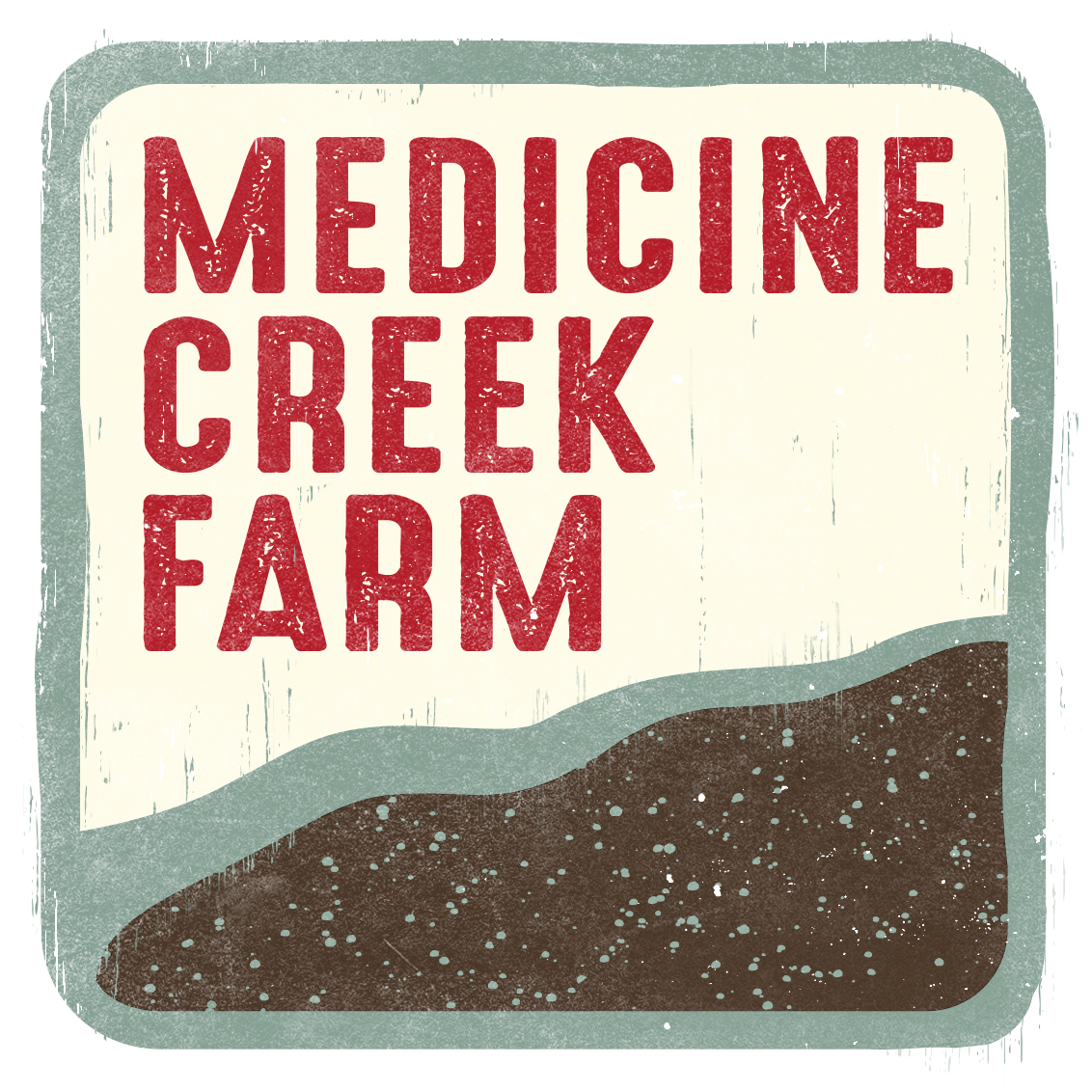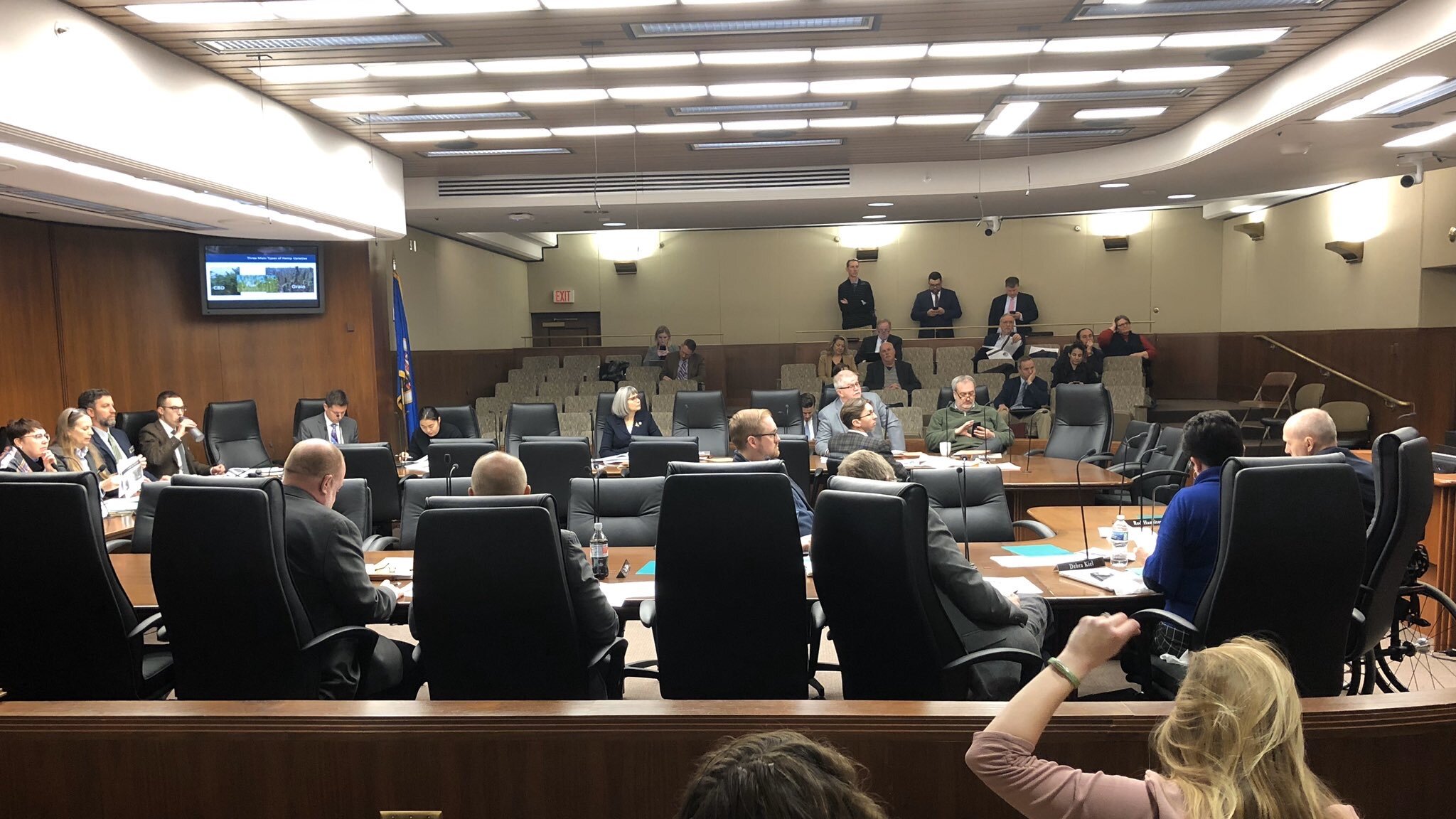MN House of Representatives Agriculture Committee Hearing Testimony on Emerging Farmers
On Feb. 13, I was invited by the Minnesota Farmers Union to testify to the Minnesota State House of Representatives Agriculture Committee regarding the Ag Department’s recently released “Emerging Farmer Report.”
Here is my testimony:
Thank you Chair Poppe and members of the committee.
For the record, my name is Hannah Bernhardt, and I am the owner and principal operator of Medicine Creek Farm in Finlayson, MN. Since 2016 I have been raising grass fed beef and lamb and pastured pork. My husband works an off-farm job, and we have a 3-year-old, Harvey, who most days farms alongside me.
I am one of the growing number of new, regenerative farmers in Minnesota. I use management-intensive rotational grazing practices, moving my cows and sheep daily to fresh grass to optimize soil health and regenerate our land, which had been conventionally cropped and hayed before we took ownership. We have no barn for our livestock, pasturing all animals 365 days a year, and keep 5 livestock guardian dogs to deter predators. We believe we can farm alongside a thriving natural ecosystem including wolves and coyotes, and our pastures are full of ground-nesting birds like Bobolinks and Meadowlarks that are quickly losing habitat elsewhere.
I direct-market our meat for a premium price to customers primarily in the Twin Cities and Duluth through our website and social media, and am fortunate to be 20 minutes from one of very few USDA processors in Minnesota, Lake Haven Meats in Sturgeon Lake. My customers buy from us because they care about animal welfare and humane treatment of livestock, the health of the food they eat and transparency of our practices, and our care for the environment, wildlife, and watershed.
I joined Assistant Commissioner Bailey for his Emerging Farmer Listening Session in Duluth, because I believe that helping beginning farmers get on the land will make our food system more resilient for everyone. I grew up on a corn and soybean farm in southern Minnesota in the 80s, and did not exactly get the message that farming was a highly desirable way to try to make a living. As I learned more about direct-market local food systems, I began to see a glimmer of hope that there could be a way for farmers to get out from under the hold of large agribusiness corporations and volatile commodity markets. The growing success of organic and sustainable farmers spoke to my worry over the state of our eroding farmland, the health effects of widespread herbicide use on farming communities, and the increasingly green, unswimmable lakes of my hometown. When I began learning more about soil health and the incredible research that properly managed, rotationally grazed livestock can actually sequester carbon and fight climate change, I was convinced to make my way back to agriculture.
Despite my farming background, I’ve still encountered numerous obstacles to establishing my farm business, and I’d like to make a few recommendations based on the report and work of the Minnesota Farmers Union that I believe could make a real difference for emerging farmers.
First, I believe increasing the beginning farmer land access tax credit from 5 to 10% would strengthen the program and its ability to help young farmers purchase land. Despite my family owning farm land, I was unable to purchase it because my plan to direct-market meat couldn’t cash flow on expensive land priced for only commodity crops. When my husband and I found affordable land in northeast Minnesota, our credit union told us we qualified for a loan to build a house there, but because we were planning to actually farm the land, it was too risky to lend to us. Instead, we spent nearly six months befriending the land owner until he agreed to a contract-for-deed. Had the beginning farmer tax credit been in place at that time, we’re certain it would have been a major incentive for deciding to sell to us and would have been a huge help to our own budget.
Second, adding an advance payment option for grant funding to emerging farmers would help those without inherited land or equipment get their farm business started. As it stands, many of the grant opportunities the state offers work on a reimbursement model, requiring farmers to front the cost of the project, thus limiting access to those who already have a significant amount of money in the bank or the ability to secure additional loans.
We encountered this problem when we received an EQIP grant for fencing before they implemented the advance payment option. I had already maxed out the amount I could borrow under the Farm Service Agency’s microloan program to get the equipment and livestock to start my operation. I furthermore don’t qualify for FSA’s regular loan program because of the unconventional arrangement under contract for deed that allowed us to purchase our land. Ultimately, I financed the fence with credit cards and a family loan.
Similarly, many emerging farmers would benefit from the creation of specific grant opportunities with higher cost-sharing percentages to establish new farm businesses. For example, I have been raising cattle and sheep for four years now with a makeshift working system cobbled together with t-posts, bent cattle panel, and a rusty 30-year-old headgate that sometimes works. To properly treat sick animals and sort and load livestock safely and efficiently, I would like to build a low-stress livestock sorting system.
The MDA’s AGRI Livestock Investment Grant sounds like the perfect fit for my project, but as the grant would only cover 10% of my project cost, I would be spending a lot of time on an application for a few hundred dollars, and I’d still be left to find several thousand dollars for the project. It’s easy to see how these grants might primarily go to large, established farm businesses who have access to the capital to build enormous facilities, and this is an example of how programs are often aimed at conventional farms and reward those with generational wealth and infrastructure.
Before I close I want to just emphasize that I am White, college-educated, from a farming background, and have the ability to navigate institutional resources and access family support. What has been difficult for me, is monumentally more so for Black, Indigenous, Latinx, Immigrant, Disabled, and LGBTQ farmers. My generation needs all hands on deck to fix a broken farm economy and food system while simultaneously adapting to and fighting climate change. I urge you to do the uncomfortable work to address institutional racism, implicit bias, and equity as outlined in the report.
Thank you for the opportunity to testify today. And thank you to Assistant Commissioner Bailey, Ariel Kagan, and the rest of the members at the Department of Agriculture for holding the emerging farmer listening sessions around the state and listening directly to our voices.





